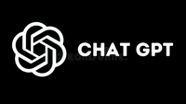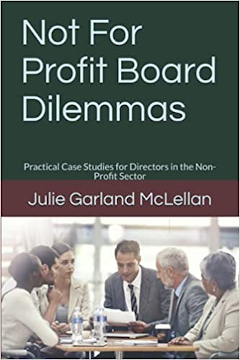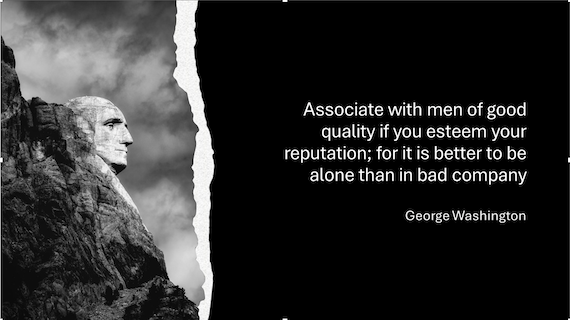|
|
|
|
|
|
|
|
|
Dear reader,
Welcome to The Director's Dilemma May 2024
Each month this newsletter looks at a real-life board scenario and considers a range of responses. The scenarios are de-identified to protect the individuals concerned. This month we consider whether a director has exposed herself to a risk of defamation proceedings in the course of discharging her duties. Please read to the end for details of my next courses available online or in person.
Of course, scenarios in this newsletter are general, I work with boards and directors as a confidential mentor and help them beat challenges and seize opportunities. If you would like personalised service, please call me.
To read this email in a web browser, go to www.mclellan.com.au/newsletter.html and click on 'read the latest issue'. I hope you will enjoy the latest dilemma:

Maisie joined a not-for-profit board, the first new director for many years. The Chair was also an employee and manager and there were no formal mechanisms for board oversight of the role, no annual appraisal, no interview process, no job specification.
For the past ten months Maisie tried to get the board to do something about these lacks. They declined to budge, citing all sorts of reasons. She was the only dissenting voice and thinks they resented 'the newbie' coming and creating waves. They also didn't seem to understand that there was a conflict between being chair and manager or that change was needed. To be fair, the organisation does good work and has a positive societal impact.
Eventually, Maisie resigned and reported the organisation to the Regulator. Within a week of the Regulator contacting the company, the Chair resigned from the board, but retained the salaried CEO position.
The chair has now threatened Maisie with legal action for defamation and for any potential loss of status or income.
Does Maisie have a problem?
|
|
|
|
Omar's Answer

Maisie's situation seems worrying due to the Chair's legal threats, but her actions fall in line with the intentions of whistle-blower laws, which are to encourage reporting of misconduct for the sake of transparency. Her whistleblowing, backed by evidence and aimed at addressing a conflict of interest within the organisation, suggests that her claims were credible.
Regarding defamation, the Chair would need to prove that Maisie's report contained false information that damaged his reputation. This could be challenging given that Maisie's report was based on evidence and seemingly validated by the regulator's action. Also, Maisie's reporting process appears to have been done appropriately, which is a key defence against defamation accusations.
Although Maisie's organisation might not have had a whistle-blower policy, the Australian Charities and Not-for-profits Commission (ACNC) does recommend such policies to ensure issues are managed transparently, which supports Maisie's approach. Charities with significant operations or those structured as public companies limited by guarantee with considerable revenue are indeed required to have one. This guidance is part of good governance practices suggested by the ACNC.
Ultimately, while facing a potential lawsuit, Maisie's adherence to good governance and the existence of whistle-blower protections provides her with a substantive defence. She should seek legal counsel to ensure she navigates this challenging scenario properly.
The ACNC's guidance on having a strategy for handling whistleblowing reports could further bolster her case, showing her commitment to responsible and ethical reporting.
Ömer R. Incekara is chair of Ataturk Scholarship, board member of Gallipolli Scholarship Fund, and advisory board member of The Salvation Army and MultiCultural NSW. He is based in Sydney, NSW, Australia.
|
|
|
|
Stuart's Answer

On the face of it this charity is in breach of ACNC's conflict of interest governance standard. It appears that Maisie's urging for improved governance has been vindicated, as a visit from the Regulator has led to the chairman/CEO stepping off the board.
However, despite that, yes of course Maisie has a problem, because someone is threatening to sue her.
A lot depends on whether the lawsuit actually proceeds or stays at the merely threatened stage. Based on the facts we are given it doesn't seem that the lawsuit would succeed. Nevertheless, Maisie must act to keep it from proceeding and resolve the situation. Until resolved it has the potential not only to hurt Maisie and the CEO, but the organisation itself and its relationships with its supporters, donors, clients, and stakeholders generally.
She should consult her notes of meetings and review her actions to check whether there is a potential defamation among the numerous conversations in the past ten months. If she has a doubt, she should consult a lawyer. It seems unlikely she will find a genuine defamation concern - the governance issues she has raised will not in themselves be defamatory.
Maisie now has several levers to use to defuse the situation:
1. There will now be a new Chair, who will know about the visit from the ACNC and its consequences. Maisie should seek support from this person, asking them to influence the CEO to drop his threat. The discussion will include:
-
The reputational risk for the charity - especially among its donor population - if its CEO sues a whistleblower who has been vindicated by the ACNC
-
The potential cost to the charity of paying for Maisie's defence as it was her director duties that led to the threat of lawsuit and she may be covered for costs arising
-
The relational risk with ACNC if the person who drew their attention to problems at the charity is sued by the CEO as a result.
-
The likelihood that in threatening Maisie the CEO is failing to discharge his duties, and the chair has a duty to deal with this
2. If there is a Director who has previously shown more understanding of the governance issues, share the situation with that person and help them understand the risk for the organisation if this lawsuit proceeds
3.Seek to meet with the CEO to find a peaceful resolution. This may seem unlikely but it should be attempted. Use a mediator.
It may be tempting for Maisie to enlist the help of an influential donor, this temptation must be resisted! The moment this happens all parties (including Maisie) have failed to support the charity with proper governance.
If these discussions do not defuse the situation, Maisie should inform the company secretary that if a lawsuit proceeds she will claim legal cover from the organisation. For this she will need legal support from her own lawyer. She should also inform the Regulator of the CEO's action.
Stuart Rodger is a non -executive director of CBHS Health, CBHS Corporate Health, and The San Foundation. Prior to directorship, he was a Partner at Deloitte. He is based in Sydney, Australia.
|
|
|
|
Julie's Answer

Anyone can allege defamation at any time. It is always a risk.
Maisie could have a problem if she made allegations about the former chair's conduct that she did not believe were true or that she did not clearly communicate as 'potential or perceived' conflicts of interest rather than 'actual or malfeasant' conflicts of interest. If she can either prove the truth of any allegation, or can prove that she merely communicated the risks of perceived conflicts, she should be safeguarded.
Unfortunately, the fact that it was your duty to raise the issue is not a defence against a claim for defamation. Directors need to raise issues cautiously and carefully, with proper legal advice taken at the time.
Good protocols around the confidentiality of board discussions and minutes will help Maisie. Directors that gossip about who said what in meetings could strengthen a case brought against her.
Good practice in minuting that the board considered potential or perceived conflicts of interests, rather that attributing the raising of the concept to any individual director will also help.
If proceedings are brought against Maisie, because it was her duty as a director to raise the matter with the board, if the board has D&O insurance, and if it continues after the directors' tenure has ended, then Maisie may be able to claim.
In future, Maisie should conduct better due diligence about who is on the board and what conflicts might be apparent before she joins her next board. She should also check the D&O cover before accepting another board seat.
Personally, I would assume it is just a cheap blow from someone who resents the impact Maisie had during her short tenure on the board. She did her job, and it is likely that the Former Chair won't feel like risking litigation unless she continues to speak about him after her job is done.
Julie Garland McLellan is an experienced non-executive director and board advisor based in Sydney, Australia.
|
|
|
|
Richard's Answer

The former Chair's threat of legal action may be a problem for Maise. However, it's likely that the former Chair is venting for losing a cushy arrangement.
In the absence of Maise making disparaging or damaging statements there doesn't appear to be anything defamatory. However, I would recommend that she take legal advice as a precaution.
The lack of formal mechanisms for oversight especially around the former Chair's management position coupled with the resistance she faced from the board, indicates a major systemic issue.
Maisie's decision to report the organisation demonstrates her commitment to upholding ethical standards and ensuring accountability. The resignation of the Chair from the board following the report suggests that her concerns have validity.
The good work and positive impact that the organisation is making doesn't excuse it from the obligation, the ethics and the optics of exercising effective modern governance.
In this case governance translates to a board and a Chair that are independent of management.
This board must fulfill its responsibilities with the utmost integrity as well as minimised perceived, potential and actual conflicts of interest.
Maise was wise to resign as it appeared that she was encircled by ignorance and perhaps ill-will since making the report to the regulator. Not a acceptable situation to be in.
Her efforts to advocate for change may lead to positive outcomes for the organisation but only if the current board members take a course as to their obligations and make the required changes to meet governance standards.
Richard Sterling is the Managing Partner for AltoPartners, Australia and focuses on Board and C-suite appoints in the For Purpose and Social Impact sector. He has three decades of consulting, executive and board search experience and is based in Sydney, Australia.
|
|
|
|
Chat GPT's Answer

Maisie may indeed have a problem, though it largely depends on the specifics of the situation and the laws governing such matters in her jurisdiction.
Regarding defamation, if Maisie made false statements about the Chair that harmed their reputation, they could potentially have grounds for legal action. However, if Maisie can prove that her statements were true or based on her honest opinions and observations, she may have a defense against defamation claims.
As for potential loss of status or income, it would be more difficult for the Chair to pursue legal action unless they can demonstrate that Maisie's actions directly caused such losses and that those actions were unlawful or unjustified. This would likely require a thorough examination of the circumstances by legal professionals.
Ultimately, whether Maisie has a problem or not will depend on the strength of her case, the applicable laws, and how the situation unfolds.
It would be advisable for Maisie to seek legal counsel to assess her situation and determine the best course of action. Additionally, she may want to document any relevant communications or events related to her interactions with the organization and the Chair to support her case.
Chat GPT is an artificial intelligence (or a pattern recognition, data analysis, and prediction engine). It resides in Cyberspace.
|
|
|
|
Book review - Not for Profit Board Dilemmas by Julie Garland McLellan

Almost every board that I work with faces dilemmas - situations where there is more than one possible answer. It is the mark of a good board that they don't just stop at the first appropriate answer but continue to generate alternative answers and develop an answer that seems to be better than the others for their board at this time.
The situations described in this book will alert you to issues that may be covertly or overtly impacting your board and, as with this newsletter, will suggest a range of possible responses so that you are empowered to select the one that best suits your board. Better than this newsletter, the book has an index so you can seek out the issues you want to focus on and also lists some helpful key points to guide you in developing your own answer.
Available at Amazon.com
Where is Julie, where has she been, and what is she doing?
I have been busy this month developing some self-paced online training courses on Writing Better Board Papers and Conducting Due Diligence Before Accepting Board Seats. Production is underway and I will share details of how to access the courses soon.
Masterclass on Writing Better Board Papers
The next scheduled deliveries are:
7 June, Sydney - book at
https://www.eventbrite.com/e/writing-better-board-papers-sydney-7-june-2024-tickets-888079779527
8 August, Melbourne - book at
https://www.eventbrite.com.au/e/writing-better-board-papers-melbourne-8-august-2024-tickets-781201654177
12 September, Sydney - book at
https://www.eventbrite.com.au/e/writing-better-board-papers-sydney-12-september-2024-tickets-871383199607
If you would prefer an in-house workshop for your executive team, please reply to this email and I will gladly schedule one for you.
Online course on Due Diligence Before Directorships
The next scheduled delivery is this afternoon 1 May at 1.00pm Sydney time or 3.00pm in Auckland - you can book at
https://www.boardpro.com/due-diligence-before-directorships-may-1
Video resources - I post short video insights on LinkedIn. They disappear after a few days. You might like to visit (and please subscribe to) my YouTube channel to see the videos whenever you want to watch them. Let me know if there are any topics you would like to see addressed.
Board review - Every board - just like every other team - needs to measure its performance if it hopes to improve. When your board next needs to conduct a performance evaluation or a governance review, please remember that I would be delighted to help. If I can help, please contact me at julie@mclellan.com.au.
Inspirational quote for May

Advice for Maisie on her next board and for all directors - you can change the world, or you can waste your time with toxic directors - you can't do both!
A note on names - A few readers have asked me where I find the names for the protagonists in each case study; I 'borrow' them from people I meet or things that I read. The name Maisie in Hebrew means rebellion or bitter. In Scotland it is thought to mean pearl. Often used as a diminutive of Margaret, our protagonist was right to rebel, should not be bitter and should cast her pearls of wisdom more wisely in future.
This newsletter - If you have any ideas for improving the newsletter please let me know. If you are reading a forwarded copy, please visit my website and sign up for your own subscription.
Suggestions for dilemmas - Thank you to all the readers who have suggested dilemmas. They are greatly appreciated. I will answer them all eventually. I could not write this newsletter without your help and without the generous help of all the experts who respond each month to the case studies.
Be a contributor - if you would like to attempt a response to the dilemmas for publication you will be most welcome. Simply reply to this email and let me know. I am always on the lookout for new talent from around the world so please reach out if that sounds like something you could do. I am also always grateful for the generous sharing of the current and past contributors. I couldn't create such an engaging newsletter without their help.
Spread the word - if you have read this far, I assume you enjoy the newsletter – please help me to reach more directors by sharing the newsletter with your board colleagues and suggesting that they also become subscribers or by posting a recommendation on my LinkedIn page to let others know that you find the newsletter valuable.
Let's connect - I use LinkedIn to share information about boards and directorship with my friends and acquaintances. If you use LinkedIn and we are not yet connected I will welcome a connection from you. You can find me at linkedin.com/in/juliegarlandmclellan.
Farewell until the next issue due 1 June 2024. I look forward to greeting you again then.
Enjoy governing your companies, it is a privilege!
Best regards,
Julie

Main photo by Karolina Grabowska from Pexels.com
Quote Illustration by Julie Garland McLellan
Disclaimer: The opinions expressed above are general in nature and are designed to help you to develop your judgement as a director. They are not a definitive legal ruling and do not constitute legal advice. Names and some circumstances in the case study have been changed to ensure anonymity. Contributors to this newsletter comment in the context of their own jurisdiction; readers should check their local laws and regulations as they may be very different.
Privacy: I am privileged to have your contact details and keep them as safely as possible. I will alert you if they are ever accessed by any unauthorised person. The technical staff at ayuda help with publishing and issuing the Director's Dilemma and have access so they can send the newsletters to you. I do not sell your details to anyone; they are kept only for the intended purpose - sending you this newsletter and helping to build the judgement of company directors by providing a safe way to consider potential responses to real life events.
|
|
|
|
|
|
|









